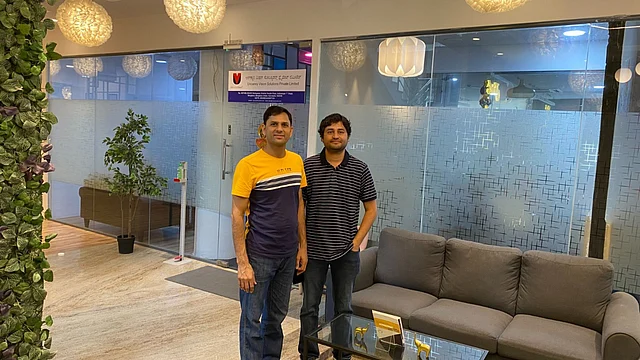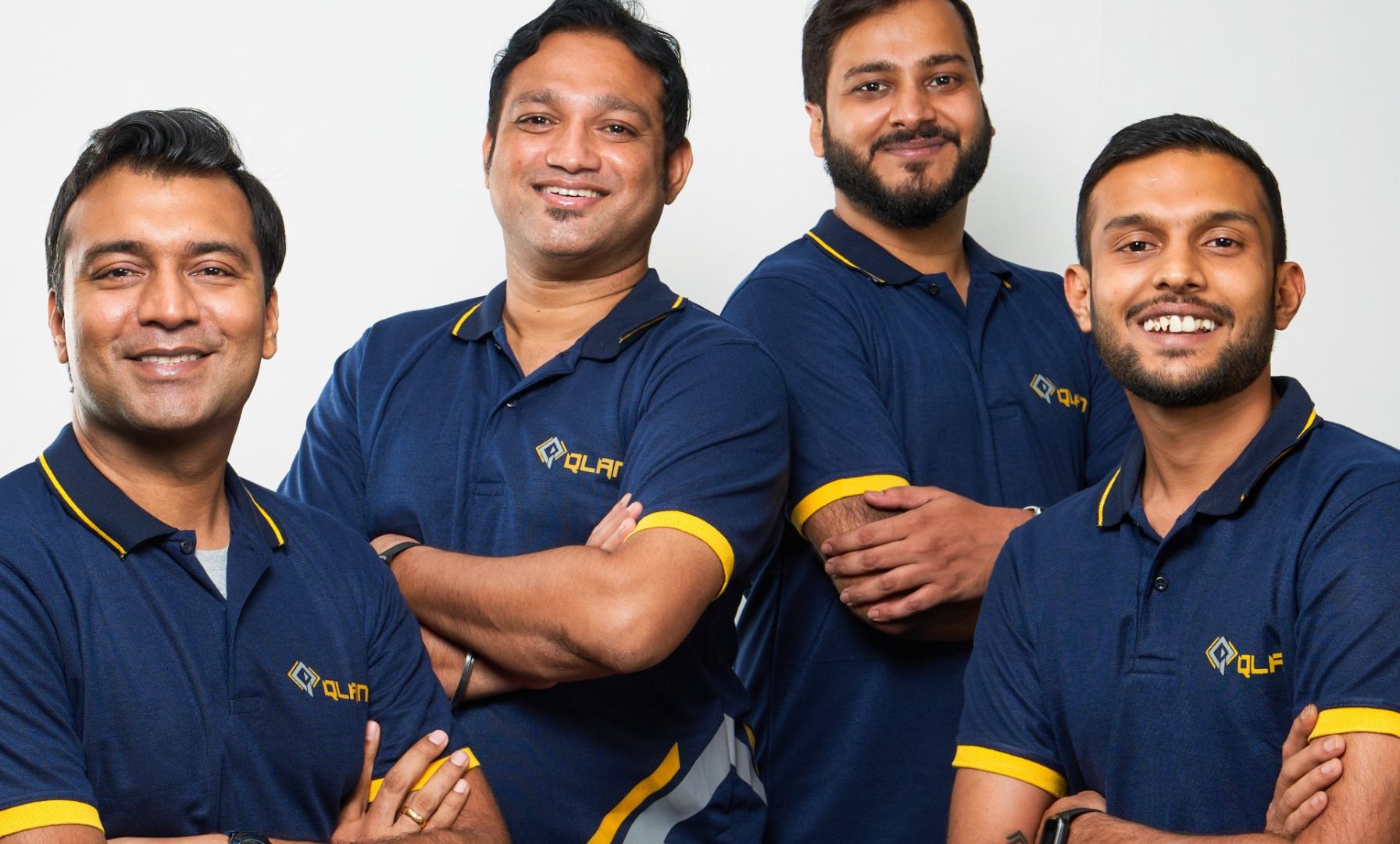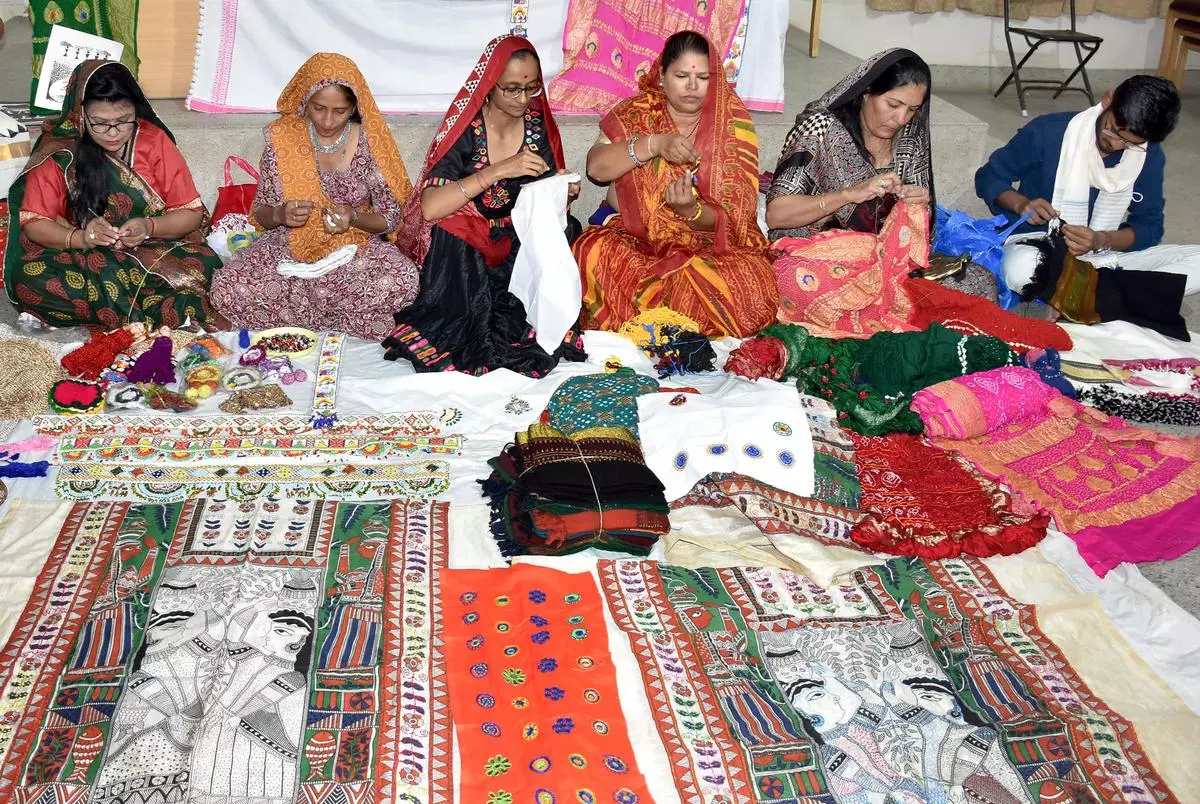Social Networking App for Gamers Qlan Secures $200K Pre-Seed Funding Led By Marwah Sports, CIIE.CO and Faad Network
Qlan, the exclusive social networking app designed for gamers and esports enthusiasts, has secured pre-seed funding to fuel its expansion and enhance gamer networking, discovery, and content creation capabilities.
Previously operating as a bootstrapped startup, Qlan which now has over 100,000 combined downloads, underwent an extensive six-month beta testing period, culminating in the platform’s full-version launch in January 2023. Bolstered by a committed team of over 20 professionals, the early-stage start-up achieved healthy organic growth, attracting a user base of over 50,000 gamers.
Qlan has effectively initiated itself as a thriving hub for gamers and esports enthusiasts with early adopters across the Indian subcontinent, Central Asia, Southeast Asia, Europe, North & South America, South Africa, and the MENA regions, ultimately leading to a successful pre-seed funding round.
Qlan’s unparalleled approach of making a positive impact on the grassroots of the gaming industry attracted significant support from notable investors which included Marwah Sports, CIIE.CO, and Faad Network in the funding round. These investments will help Qlan in its vision of empowering gamers all over the world with an engaging and seamless networking opportunity.
Expressing his thoughts on the funding round, Sagar Nair, Co-founder, and CEO of Qlan commented, “The pre-seed funding round signifies an exciting new phase for Qlan, and we are delighted to have Marwah Sports, CIIE.CO, and Faad Network as backers. This demonstrates the remarkable potential of Qlan and the burgeoning global gaming and esports industry. While we are grateful for the worldwide validation of Qlan by gamers, our primary objective now is to scale our platform, optimize user experience, and gain deeper insights into our community’s needs. With the invaluable support of our investors, we are poised to elevate Qlan to new horizons and empower the ever-expanding global community of gamers”
The investors backing Qlan have a distinguished portfolio of having supported and nurtured successful ventures in the past. Marwah Sports, the sports arm of the more than 60-year-old enterprise Marwah Group, has backed several marquee ventures including sports hardware manufacturing companies Square Off and Elevar, and sports tech companies Uactiv and Sporjo.
“Meaningful and engaged communities will form the bedrock of the fledgling Indian and global gaming ecosystem. With Qlan, individuals and organisations can focus on what is most important – retention and engagement. We are encouraged and excited by the progress made by the team – this is only just the beginning!” – Pranav Marwah; CEO – Marwah Sports & Director of Marwah Group.
CIIE.CO is the Innovation Continuum spreading from incubation, acceleration, seed, and growth funding to research. CIIE.CO has accelerated over 1000 entrepreneurs/startups, funded in over 300 startups, mentored, and coached over 5000 startups
”Esports in India is witnessing “green shoots” of tailwinds. With the government priming up with recognition, regulatory frameworks should follow suit. Parallelly there is a sharp rise in esports athletes, teams, events, sponsors turning to franchises etc. There will be a need to bridge these facets with a community-driven solution and enable growth. This is where Qlan fits in and would be ripe to tap into what we feel is a sunrise sector in India today.” – Chintan Antani; VP Seed Investing – CIIE.CO.
Faad Network Limited, a well-renowned investor network, has a substantial portfolio in the Esports domain that includes India’s first cloud gaming service, the Gaming Project, and Esports XO which is one of the country’s fastest-growing organizations.
“India has over 400 million online gamers, with a total market size of over 4 billion dollars. Not only do 90% of these gamers transact, but they also maintain an active social profile to connect with other gamers. This is where we found a fit in Qlan, which is building a comprehensive solution to join gamers and esports enthusiasts. The stellar team understands these gamers’ space and pulse and will drive home a scalable business.” – Aditya Arora; CEO – Faad Network Limited.
According to the latest research by SkyQuest Technology, the Global Esports Market was valued at USD 1.08 Billion in 2021, and it is expected to reach a value of USD 2.8 Billion by 2028, at a CAGR of 14.50% over the forecast period (2022-2028). Esports is becoming increasingly popular as a result of global digitization and the low cost of advanced gaming technologies.
Emphasizing the importance of establishing strong fundamentals, driving growth, and attaining product-market fit, Qlan plans to utilize the funds raised in the Pre-Seed round to not only expand its platform to a wider community but also to bolster its team and leverage its technologically advanced product, which is meticulously crafted with a focus on user-centric principles.
Esports Can Flourish In India But Need Key Growth Drivers
In 2022, the Indian government officially recognised esports as a sport, placing it on equal footing with mainstream sports like cricket and football. In the same year, esports debuted as an official medal sport at the Asian Games and as a pilot event at the Commonwealth Games. The Indian DOTA 2 (a multiplayer battle arena video game) team created history by winning bronze at the first Commonwealth Esports Championship held in Birmingham.
The Indian digital gaming industry is expected to grow exponentially, fuelled by increased digitisation due to affordable data and smartphones, as well as the COVID-19 pandemic. Esports, a subset of digital gaming, is at the forefront of this growth and is estimated to become a Rs 1,100 crore industry by 2025 at an astounding CAGR of 46%!
While they are often confused with each other, esports are categorically different from casual digital gaming and real money gaming (RMG). Casual digital gaming entails interaction with video games at an informal level. RMGs, which include fantasy games, are online games where a user makes a deposit in cash or kind with the expectation of earning winnings.
Esports, on the other hand, involve skilled athletes competing individually or in teams for prize money and global recognition. While all esports are video games, not all video games are esports. Some popular esports today include Counter Strike, Fortnite and Valorant.
Competitive gaming can be seen as the germination point for esports. Alongside competition, other characteristic elements of esports include a large player base and audience, score tracking features as well as backing from tournament organisers and video game publishers. A significant audience is particularly important. Like mainstream sports, esports stakeholders such as teams and tournament organisers rely on audience monetisation as a major revenue source.
Due to the viewership-heavy nature of esports, the industry has found a place next to major entertainment avenues such as OTT and mainstream sports. For instance, an event organised by NODWIN Gaming, an esports company in India, was televised on Star Sports 2 garnering 12.3 million views in the first eight days of the tournament.
There are, however, some foundational requirements for esports to reach their potential.
First, the birth of local esports tournaments is a critical starting point and growth driver for the industry. These tournaments act as avenues for athletes to train, compete and be discovered for larger competitions. A similar trend has been seen with mainstream sports where regional competitions like the Ranji Trophy for cricket and Subroto Cup for football have become training and scouting grounds.
The emergence of grassroots esports tournaments in India has begun. This traction must be given a boost. For instance, startups like Gamerji and Tournafest offer platforms for esports tournament discovery and engagement. As popular esports athletes emerge in nascent tournaments, a strong fan following is expected to develop, paving the way for esports to become entertainment much like mainstream sports.
Second, countries with a robust history in sports and entertainment have been able to integrate underpinning networks of broadcasting, journalism and content distribution into esports. As esports begin to gain interest from a massive audience, a strong commercial structure becomes essential for smooth operations of large-scale tournaments and leagues. These structures include digital platforms for viewer monetisation, physical and virtual event management solutions, tech enabled ticket and merchandise sales and more. Stan, a fan engagement startup, is enabling fans to engage with their favourite esports via collectibles. India is well positioned with a rich history in sports and entertainment and must capitalise on existing infrastructure for esports.
Third, recognition and support from educational institutions provide a boost to the industry. In 2022, a school in Uttar Pradesh became the first in India to offer esports as part of extracurricular activities.
The recruitment of esports athletes by marquee teams along with lucrative sponsorships have demonstrated the potential of esports to provide legitimate full time career opportunities. The average age range of esports athletes across game titles is 20-27 years, indicating that fresh graduates could be a potential talent acquisition source for teams. Leading esports teams in India include Revenant Esports and Orangutan Esports which carry rosters across esports like Call of Duty, Free Fire and Valorant, which are different video games under the first-person shooter genre.
Finally, government intervention for setting up a formal governing body and recognition of the sport will provide a massive fillip to the growth of the esports industry.
For esports in India, 2022 was a landmark year. The recognition of esports as a sport marks a significant milestone. With the right foundational elements in place and growth drivers on track, esports have the potential to create more than 11,000 direct and indirect jobs by 2025 and become a major contributor to the Indian digital gaming industry.
With the second-largest gamer base in the world of over 400 million gamers, India has all the ingredients to become a leading player in the global esports industry.
IIM-A incubator to support 100 craft startups by 2025
Centre for Innovation, Incubation and Entrepreneurship (CIIE.CO), the startup incubator of Indian Institute of Management, Ahmedabad, will support over 100 early-stage craft startups by 2025.
It will also provide over 15 innovative craft startups access to portfolio support. It will provide seed funding and capital support of up to ₹50 lakh.
Chintan Bakshi, Partner, Incubation, CIIE.CO, told BusinessLine, “Passionate entrepreneurs working directly with craft clusters in India can help India leapfrog from a fossil-fuel-based economy to a green and sustainable economy. At the same time it would create millions of sustainable rural livelihoods.”
Interventions in design, materials, and technology to develop and market sustainable, socially conscious, and eco-friendly products will fuel the growth, he added.
Bharat Innovation Fund: IIM-A incubator is betting big on deep-tech startups
Raising early-stage funds is an uphill task for deep-tech startups. The first product is often expensive to build and takes years to launch. Not many are willing to back such bold startups until they make a breakthrough in the technologies they are building. It was this that led to the launch of IIM Ahmedabad’s Centre for Innovation Incubation and Entrepreneurship Continuum (CIIE.CO)-backed early-stage venture firm Bharat Innovation Fund (BIF) in 2018. It was meant to provide pre-Series A and Series-A funding to deeptech and IP-focused startups, which remain outside the profile and deal flow of most venture capital (VC) funds at their initial stages.
This category-I VC firm has so far funded seven deep-tech startups, and has seven other investments in tech infrastructure/inclusion solutions, deploying almost 40% of its fund pool of $100 mn. The fund has secured commitments from institutional investors like SIDBI (Fund of Funds), ICICI Lombard, SBI Life, RBL Bank, and Federal Bank, and corporates such as Philips and Bajaj Electricals, along with global entrepreneurs, family offices, and HNIs.
“Under our deeptech umbrella, we have experience in running both tech-focused as well as industry/sector focused startup support programmes,” says Priyanka Chopra, chief operating officer and managing partner – seed investing at CIIE.CO, and a venture partner at BIF. “We are currently running the Sustainability Value Accelerator in a partnership with Accenture and plan to launch more programmes this year.” The $100-mn corpus is allocated to two major funds – BIF and Bharat Inclusion Fund. BIF focuses on deep-tech start-ups while Bharat Inclusion Fund backs India Stack-based products that target the next billion internet users.
Gig workers are young, financially stressed and largely uninsured: report
(PTI) Over 52 percent of gig workers or contract employees feel that their work environment makes it challenging for them to upskill or find new job opportunities, according to a report.
However, over 52 per cent of gig workers said the gig working environment makes it difficult to upskill or find new job opportunities, it added.
“Only about one in three individuals we spoke to had clear plans for shifting jobs in the near future. This was despite the vast majority reportedly working overtime in their current shifts and having no resources for up-skilling at the jobs they held,” said the report.
If they are not upskilled and placed in good organisations with better income, it leads to underutilised human capital within the country, it stated.
The CIIE.CO report is based on a survey among 4,070 platform based gig workers, including the high earning knowledge workers and daily-wage agricultural workers.
The report further said that 50 per cent of platform workers today find their jobs through traditional referral networks despite 80 per cent having internet access.
“In many ways, gig workers are channels through which the old and new India interact. We’re in 2022, it is about time that each of us has access to our own data. Enabling gig workers to own and use their employment, financial, health etc. data will improve their well-being and unlock the growth of both traditional and new economies,” CIIE.CO Partner – Insights Supriya Sharma said.
Being powered by declining internet and hardware costs, technology-based platforms are becoming a lifeline for employment at a time when traditional sectors dwindle in size and reach, it said.
Empowering the gig worker with owning and using their own data would improve her wellbeing, including job prospects and financial health, the report added.
Over 52% gig workers feel work environment makes it difficult to upskill, find new jobs: Report
(PTI) Over 52 percent of gig workers or contract employees feel that their work environment makes it challenging for them to upskill or find new job opportunities, according to a report.
According to the report by CIIE.CO, a startup platform built at the Indian Institute of Management (IIM) Ahmedabad, most young respondents increasingly look towards gig economy platforms for their first jobs.
However, over 52 percent of gig workers said the gig working environment makes it difficult to upskill or find new job opportunities, it added.
The report further analyzed that gigs offered by platforms initially hook individuals with the opportunity of short-term income but keep them employed for prolonged periods of time in a career without a long-term growth trajectory.
“Only about one in three individuals we spoke to had clear plans for shifting jobs in the near future. This was despite the vast majority reportedly working overtime in their current shifts and having no resources for up-skilling at the jobs they held,” said the report.
This skills gap, however, has another significant impact on the long-term growth of the economy, the report said, adding the data has revealed that platforms today are increasingly becoming the source of a first job for young graduates leaving university.
If they are not upskilled and placed in good organizations with better income, it leads to underutilized human capital within the country, it stated.
The CIIE.CO report is based on a survey among 4,070 platform-based gig workers, including high-earning knowledge workers and daily-wage agricultural workers.
The report further said that 50 percent of platform workers today find their jobs through traditional referral networks despite 80 percent having internet access.
“In many ways, gig workers are channels through which the old and new India interact. We’re in 2022, it is about time that each of us has access to our own data. Enabling gig workers to own and use their employment, financial, health, etc. data will improve their well-being and unlock the growth of both traditional and new economies,” CIIE.CO Partner – Insights Supriya Sharma said.
Being powered by declining internet and hardware costs, technology-based platforms are becoming a lifeline for employment at a time when traditional sectors dwindle in size and reach, it said.
Empowering the gig worker with owning and using their own data would improve their well-being, including job prospects and financial health, the report added.









